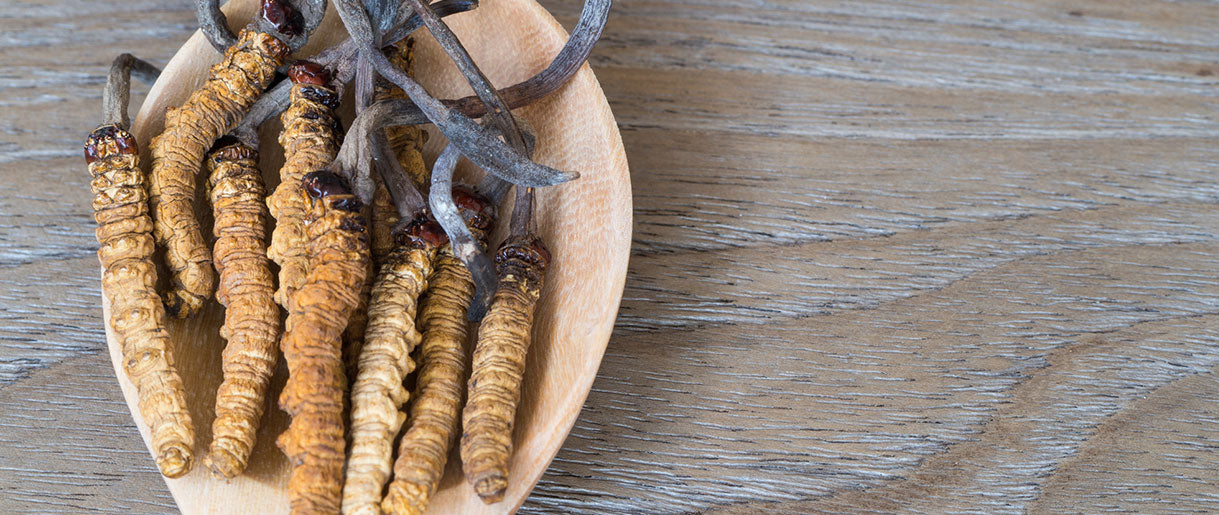Cordyceps, a type of medicinal mushroom, is commonly used in traditional Chinese medicine and has gained attention for its potential effects on testosterone levels. Research has shown that cordyceps can stimulate testosterone production, which could contribute to increased energy, improved sexual health, and enhanced mood.
Natural supplements are vast, with various options claiming to improve health. Cordyceps has emerged as an exciting candidate, especially in men's health. Known primarily for its immune-boosting properties, this unique fungus has a long history of use in traditional medicine. It's being studied for its possible effects on testosterone, an essential hormone that plays a vital role in several bodily functions, including muscle development, bone density, and sex drive.
This article delves into the fascinating connection between cordyceps and testosterone. We'll explore what science says about it, the potential benefits and risks, and how to safely incorporate cordyceps into your wellness routine.
Unraveling the Mysteries of Cordyceps

The Curious Life of Cordyceps: Sinensis and Militaris
Cordyceps is a genus of parasitic fungi with over 400 known species. The two most notable species, particularly in human consumption and study, are Cordyceps Sinensis and Militaris.
Cordyceps Sinensis grows naturally in the high-altitude regions of China, Nepal, and Tibet, often on insect larvae. On the other hand, Cordyceps Militaris is more globally distributed and usually found on the pupae of insects.
Each species comprises two parts: the fruiting body and the mycelium. The fruiting body is the part we often see above ground, while the mycelium is the underground network of filaments that absorbs nutrients. The Cordyceps Sinensis mycelium is often used in health supplements, as well as the Cordyceps mycelium of other species.
Cordyceps Through the Ages: A Medicinal Marvel
Cordyceps has been utilized in Traditional Chinese Medicine for centuries, particularly Cordyceps Sinensis. Its use dates back to the ancient Tang Dynasty, when it was prized for its health-boosting properties.
Cordyceps Sinensis and Cordyceps Militaris were traditionally used to treat various ailments, from fatigue and coughs to kidney disease and low sex drive. Today, scientific studies back many of these traditional health claims, underscoring the potential health benefits of Cordyceps.
Cordyceps in the Modern Age: Boosting Performance and Wellness
In contemporary times, Cordyceps, especially Cordyceps Militaris, has grown in popularity. This is primarily due to emerging human studies indicating their positive effects on various aspects of health.
One area where Cordyceps has received significant attention is in enhancing exercise performance. Some research suggests that(1) the mushroom could improve how our bodies use oxygen during exercise, potentially enhancing stamina and endurance.
Moreover, Cordyceps is lauded for its potential health benefits outside of exercise, including boosting the immune system, enhancing sexual health, and potentially aiding in managing type 2 diabetes. Its potent combination of traditional lore and contemporary science positions Cordyceps as a fascinating focal point in natural health supplements, sparking the curiosity of fitness enthusiasts and wellness circles alike.
Decoding Testosterone: The Powerhouse of Male Physiology

Testosterone: The Master Regulator
Testosterone, a steroid hormone from the androgen group, is a critical player in the human body, predominantly in male physiology. Primarily produced in the testicles—in the Leydig cells, specifically—Testosterone plays a significant role in male reproduction and sexual function. This hormone also contributes to muscle mass, bone density, body hair, and mood.
A complex chain of signals controls testosterone production. The hypothalamus instructs the pituitary gland on how much testosterone to produce, and this message comes in the form of luteinizing hormone (LH). LH then navigates to the Leydig cells in the testes, triggering testosterone secretion.
The Implications of High and Low Testosterone Levels
Testosterone levels have a profound impact on male health and well-being. If serum testosterone levels are too high, it may result in mood swings, acne, and high red blood cell count, among other symptoms. Overly high testosterone is typically a result of testosterone or steroid use rather than natural testosterone production.
Conversely, low testosterone levels may lead to various health concerns, including fatigue, depression, decreased muscle mass, and reduced sexual performance. One particularly concerning side effect of low testosterone is erectile dysfunction, which can impact self-esteem and relationships. Furthermore, low testosterone can negatively affect sperm production and sperm motility, which can lead to fertility issues.
Behind the Scenes of Fluctuating Testosterone Levels
Testosterone levels can fluctuate for many reasons. Age is a natural factor, with testosterone production often declining as men age. Lifestyle factors can also impact hormone balance; poor sleep, stress, obesity, and lack of exercise contribute to lower testosterone. Some health conditions can also impact testosterone, including diseases of the testicles or pituitary gland.
The health of testicular tissues and primary testicular cells can also influence hormone levels. For instance, damage to the Leydig cells can negatively impact testosterone production and erectile function.
Unveiling the Science: Cordyceps and Testosterone

Cordyceps and Testosterone: What Does the Research Say?
Scientific studies investigating the effects of Cordyceps, particularly Cordyceps militaris supplementation, on testosterone production have delivered intriguing results. A study(2) using mouse Leydig cells demonstrated that the extract of Cordyceps Militaris exhibited vitro stimulatory effects on testosterone production. This study highlighted the potential of Cordyceps in stimulating Leydig cells, which are pivotal to testosterone production.
Additionally, a study using(3) cultured Cordyceps sinensis demonstrated positive effects on mouse Leydig cell steroidogenesis, suggesting that this fungus could influence testosterone production at a cellular level. Both of these studies lay the groundwork for exploring the potential of cordyceps to enhance testosterone levels and, by extension, male reproductive health.
The Impact of Cordyceps on Sperm Production and Testosterone Levels
Cordyceps has also been studied(4) concerning sperm count and production. In studies involving male rats, Cordyceps sinensis supplementation increased the sperm count. Another study involving Sprague Dawley rats demonstrated that Cordyceps militaris enhanced sperm production, possibly due to increased testosterone production.
Furthermore, research on Cordyceps militaris(5) and its impact on testosterone levels in Sprague Dawley rats showed promising results. After regular administration of Cordyceps militaris, the rats showed significant increases in testosterone levels, suggesting a positive relationship between the fungus and testosterone production.
Deciphering the Mechanisms: How Does Cordyceps Influence Testosterone?
The mechanisms through which Cordyceps impacts testosterone are still not fully understood but may involve the regulation of critical hormones. For instance, studies suggest that Cordyceps might influence the release of gonadotropin-releasing hormone (GnRH), which triggers the production of luteinizing hormone — a key player in testosterone production.
Furthermore, the stimulatory effects of Cordyceps on Leydig cells could enhance testosterone production directly, contributing to improved reproductive functions. While the specific biochemical pathways are yet to be fully outlined, these findings underscore the potential of Cordyceps, particularly Cordyceps militaris, as a natural approach to bolstering testosterone levels and overall male reproductive functions.
Harnessing the Power of Cordyceps: Potential Benefits for Testosterone

Energized and Ready: The Stamina-Boosting Effects of Cordyceps
One potential advantage of increased testosterone levels through cordyceps militaris supplementation is enhanced energy and stamina. While cordyceps may also boost energy levels by increasing oxygen uptake, testosterone is well-known for boosting energy levels and improving physical performance.
Therefore, since Cordyceps can effectively stimulate testosterone production, it can increase vitality and endurance. This could particularly benefit athletes or those seeking a natural energy boost. Cordyceps is used pre-workout for its benefits on energy and exercise performance.
Igniting the Spark: Cordyceps and Sexual Health
Improvements in sexual health and performance are another potential benefit of cordyceps supplementation. Studies have suggested that Cordyceps may positively affect sperm count, which can play a crucial role in male fertility.
Furthermore, given that testosterone plays a vital role in libido and erectile function, an increase in testosterone levels could potentially lead to improved sexual performance and satisfaction. However, more research is needed to establish a clear link between Cordyceps and libido.
A Positive Mood and Sharp Mind: The Cognitive Effects of Cordyceps
Cordyceps may positively impact mood and cognitive function, possibly due to its potential to boost testosterone levels. Testosterone has been linked with mood regulation and cognitive abilities such as memory and concentration.
Consequently, if Cordyceps can stimulate testosterone production, it may help enhance mood and cognitive performance. However, as with other potential benefits, more research is needed to substantiate these claims fully.
Navigating the Landscape: Risks and Side Effects of Cordyceps

Potential Side Effects: Understanding the Body's Response to Cordyceps
As beneficial as Cordyceps can be, it is essential to note that its consumption may have some side effects. While the dangers of cordyceps are extremely rare, some individuals may experience digestive upset, including diarrhea, nausea, or dry mouth after consuming Cordyceps.
Additionally, there have been reported instances of individuals experiencing mild skin rashes or slowed clotting, which may increase the risk of bleeding, especially for those with bleeding disorders. However, it's important to note that these side effects are uncommon and may vary from person to person.
Interaction Alert: Cordyceps and Medications
Cordyceps may interact with certain medications or substances. For instance, its potential to slow blood clotting might increase the risk of bleeding when taken with anticoagulant drugs or supplements known to affect blood clotting. Moreover, since Cordyceps can affect blood sugar levels, it may interfere with diabetes medications.
Similarly, it may also affect the immune system, interfering with medications that decrease the immune system's response, such as those used for autoimmune diseases or after organ transplants. Therefore, individuals using these medications should consult a healthcare professional before beginning Cordyceps supplementation.
Safe Usage: Expert Advice on Cordyceps Consumption
Most health experts suggest that when taken in moderate amounts, Cordyceps is generally safe for most people. However, due to the potential side effects and interactions, starting with smaller doses and gradually increasing to assess the body's response is crucial.
Additionally, it's always a good idea to consult a healthcare professional before starting any new supplement, including Cordyceps, particularly for individuals with existing health conditions or those who are pregnant or breastfeeding.
How to Use Cordyceps for Testosterone: A Comprehensive Guide

Variety is the Spice of Life: Forms of Cordyceps
Cordyceps supplementation comes in various forms, each offering unique ways to incorporate this remarkable fungus into your regimen. Cordyceps supplements often come in pill or capsule form, offering a concentrated dose that's easy to add to your daily routine.
For a more natural approach, Cordyceps powder can be an excellent choice. A very versatile form, the mushroom powder can be mixed into smoothies, protein shakes, or even sprinkled over food. Additionally, the powder form allows you to control the dosage more precisely.
For mushroom tea enthusiasts, the aqueous extract of Cordyceps can brew a warming, healthful beverage. This traditional method of consuming Cordyceps is soothing and allows for easier absorption of the active compounds.
Charting the Course: Dosage and Timing for Cordyceps
As with most supplements, starting with a lower dosage of Cordyceps and slowly increasing it is essential, allowing your body to adjust. Most cordyceps supplements recommend a starting dose of around 1,000 to 3,000 milligrams daily. However, dosages can vary based on the specific product, your health status, and the advice of your healthcare provider.
Regarding the best time to take cordyceps, the mushroom can be taken at any time of the day. However, some people find that taking it in the morning or before a workout maximizes its energy-boosting effects.
The Bigger Picture: Lifestyle and Dietary Changes to Boost Testosterone

While Cordyceps supplementation can significantly support testosterone production, it's important to remember that overall lifestyle and diet also heavily influence hormone balance. Regular exercise, particularly resistance and high-intensity interval training, can help stimulate testosterone production. Adequate sleep and stress management are also critical for maintaining healthy testosterone levels.
Diet-wise, adequate proteins, moderate fats, and enough vitamins and minerals from various whole foods can contribute to healthy testosterone levels. Foods high in zinc, vitamin D, and antioxidants are particularly beneficial.
Ultimately, combining a balanced lifestyle, a nutritious diet, and the potential benefits of Cordyceps militaris supplementation can support optimal testosterone levels, boosting energy, improving mood, and enhancing overall well-being.
Cordyceps Testosterone Benefits Video
FAQs About Cordyceps Testosterone Benefits
Can Women Also Benefit From Taking Cordyceps For Hormone Balance?
Women can also benefit from taking Cordyceps. While it's commonly associated with male health due to its potential to boost testosterone levels, it can also benefit women.
Cordyceps can help increase energy, support the immune system, and potentially enhance libido. However, its impact on specific female hormones is not as well-studied as its effect on testosterone.
How Long Does It Take To See The Effects Of Cordyceps On Testosterone Levels?
The timeframe in which individuals may experience the effects of Cordyceps on testosterone levels can vary widely based on factors such as dosage, individual health status, and lifestyle.
Some individuals might notice changes in energy levels or other potential benefits within a few weeks of consistent use, while others might need a few months to notice significant changes. It's essential to be patient and consistent with supplementation, and as always, consult with a healthcare professional for personalized advice.
Can Cordyceps Interact With Other Herbal Supplements Or Natural Remedies?
Yes, Cordyceps could potentially interact with other herbal supplements or natural remedies. For example, if you are taking other supplements or remedies with blood-thinning properties, combining them with Cordyceps might increase the risk of bleeding.
Additionally, because Cordyceps can affect blood sugar levels, it could interact with supplements that have similar effects. It's best to consult a healthcare professional before starting Cordyceps if you already take other supplements or remedies.
Key Takeaways
Cordyceps, a unique fungus used for centuries in traditional medicine, has piqued the interest of modern science and wellness enthusiasts alike for its potential to boost testosterone levels. These benefits are seemingly wide-ranging, from enhanced energy and stamina to potential improvements in sexual health and cognitive function.
Yet, as with everything in life, it's essential to understand the whole picture. While the potential benefits are enticing, it's crucial to also recognize the possible side effects and interactions, particularly for those on specific medications or with underlying health conditions.
Finally, we'd love to hear from you! What are your thoughts or experiences with Cordyceps? Feel free to share your insights or ask questions in the comment section below. Let's continue discussing this fascinating fungus and its potential impact on testosterone.
References
- Effect of Cs-4® (Cordyceps sinensis) on Exercise Performance in Healthy Older Subjects: A Double-Blind, Placebo-Controlled Trial, (1)https://www.ncbi.nlm.nih.gov/pmc/articles/PMC3110835/
- The Administration of Cordyceps Militaris Inhibited the Decrease of Leydig Cell Number and Testosterone Level in Male Wistar Rats (Rattus Norvegicus) Exposed with Cigarette Smoke, (2)https://www.ej-biomed.org/index.php/ejbiomed/article/view/51
- Functional study ofCordyceps sinensis and cordycepin in male reproduction: A review, (3)https://pubmed.ncbi.nlm.nih.gov/28911537/
- Effects of Cordyceps militaris fermentation products on reproductive development in juvenile male mice, (4)https://pubmed.ncbi.nlm.nih.gov/35962055/
- Effect of Cordyceps militaris on Testosterone Production in Sprague-Dawley Rats, (5)https://koreascience.kr/article/JAKO201115735559990.pdf









Let Us Know Your Comments